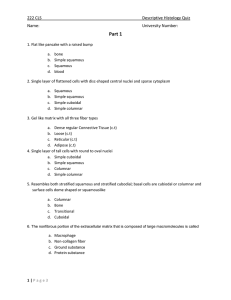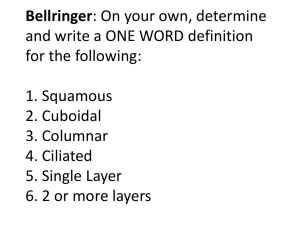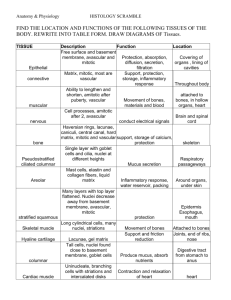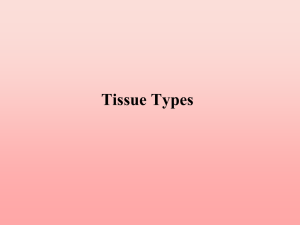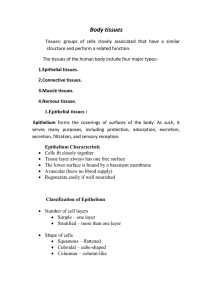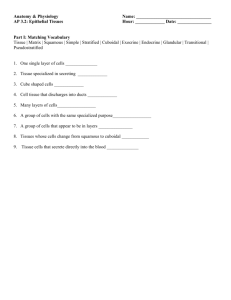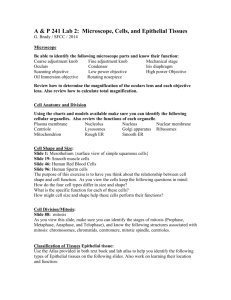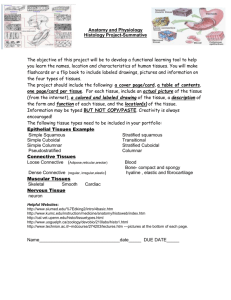1-simple epithelium tissue 2
advertisement
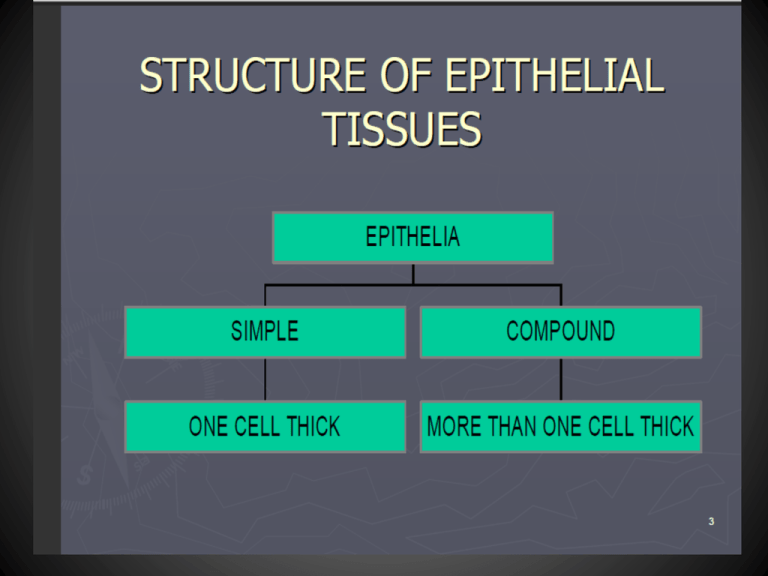
Structure of Epithelial Tissues EPITHELIA SIMPLE COMPOUND ONE CELL THICK MORE THAN ONE CELL THICK 1 SQUAMOUS CUBOIDAL COLUMNAR 2 Simple Squamous & Cuboidal Epithelia Squamous (single arrow) • • Formed by flattened cells whose nuclei often appear to bulge outwards. Found in places where there is movement of materials and even cells across the epithelium. Example here is from the loop of Henle in the kidney, also found lining all blood vessels, forming Bowman’s capsule in the renal cortex. Cuboidal (double arrows) • • 9 In section cell profiles appear as squares with central nuclei. Found lining tubules in kidney, walls of thyroid follicles Often involved in secretory functions Nucleus of simple squamous cell Nucleus of simple cuboidal cell 10 Simple Columnar Epithelium 16 • Found extensively in the gut, glands and ducts of glands. • Cells taller than they are wide although height variable. • Ovoid nuclei basally located. • Example here from the stomach. • Cells often involved in secretion (as in the stomach) and also in absorption as in the small intestine Pseudostratified Columnar Epithelium The upper picture is from the seminal vesicle and the lower from the trachea. In both cases note how the nuclei are at different levels in the cells giving the appearance of more than one layer. In the case of the section of trachea the columnar cells carry a surface specialization (cilia - arrowed) and also have flask shaped goblet cells between them (G) 24

